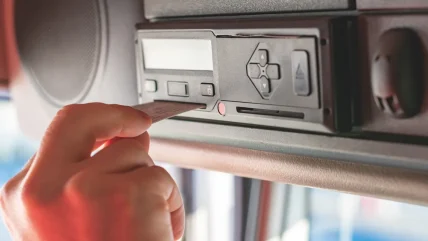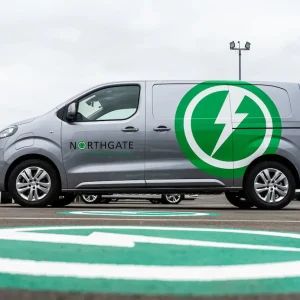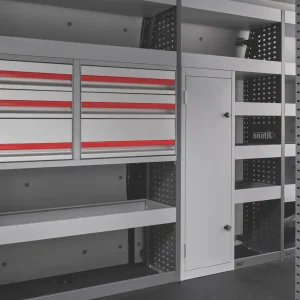
European Union regulations mean operators will soon have to fit tachographs to vehicles weighing less than the current threshold of 3.5t if they want to drive on the continent and in the Republic of Ireland, and the UK is reportedly considering similar initiatives on home turf.
Legislation for LCVs travelling within the bloc began to tighten earlier this year. From 21 May, the UK/EU Trade and Cooperation Agreement dictated that businesses using vans weighing between 2.5 and 3.5t for hire and reward must have an International Operator’s Licence to drive in the EU – including those travelling from Northern Ireland to the Republic of Ireland.
A recent email update from the DfT seen by What Van? suggested this regulation could be a particular issue for companies preparing to transport goods to Europe for “festive season deliveries… [such as] shops, home delivery and festive markets.”
That doesn’t mean the vehicles need a tachograph, but it is a sign of things to come. From July 2026, those same 2.5–3.5-tonne vans will have to be fitted with tachographs if they are to be used in the exact same circumstances – travelling to Europe for hire and reward – as part of the EU Mobility Package, legislation that aims to “create consistent and easily enforceable standards supporting driver safety, fair competition, sustainable business practices and other improvements to the transport industry”.
There is also speculation that authorities are considering extending tachographs to vehicles from 2.5-tonnes across the board – not just for those travelling abroad, for example – because of the accident rates associated with vans. Department for Transport (DfT) figures show that vans have the highest ‘other road user’ death rate (incidents where another party was involved) per billion miles travelled of any form of road transport.
Both the UK and the European governments are allegedly considering initiatives to introduce tachographs to vans. One source told us, “I have been led to believe there are discussions about this at higher EU and [UK] government levels.”
What Van? asked the DfT if this was on the cards, and a spokesperson said, “we currently have no plans to require tachographs for such vehicles being used solely for domestic transports,” while the Driver and Vehicle Standards Agency (DVSA), which is responsible for drivers’ hours and roadside enforcement, told us it was “a decision for the DfT”.
Slides from a DVSA presentation seen by What Van? said it was “working on practical enforcement challenges from domestic fleet and inbound European vehicles,” and “working on communicating with a sector we have not engaged with previously”.
Jemma James, managing director of tachograph and fleet software specialist TruTac, explains the reasons behind the authorities’ eye on LCVs. “Obviously, they are unregulated. They [drivers] are driving far longer hours [than heavy vehicle drivers] and, often, the vehicles are either overloaded or have unsecured loads.
“When you think there are 400,000 HGVs on the road, but you’ve got over four million vans, there’s a huge disparity there and, of course, there’s been a massive increase in home delivery, so there are a lot more vans on the road. None of those are regulated, and they don’t fall under the operator licensing requirements that HGVs are subject to.”
Marc Caplin, compliance advisor at fellow tachograph specialist Aquarius, isn’t convinced the tech will make it onto LCVs for the same reasons – not that the DVSA wouldn’t like it to happen, but because it lacks the resource to police them. “I think the DVSA would love more regulation of those smaller vehicles. However, they would need to employ far more people to enforce that at the roadside.”
More immediately, the DVSA is said to be targeting vans and pick-ups towing heavy loads that put them into tachograph territory, when the combination of the vehicle and its trailer exceeds the 3.5-tonne limit. A glance at the DVSA’s social media feeds reveals posts highlighting vans towing loads that would put them into tacho territory, or those that are just overloaded, which have been stopped and penalised by its roadside enforcement teams.
“They [the DVSA] are stopping more vans with trailers,” says James, “they are seeing people using vans and trailers as a way to circumvent the HGV rules, and they’re getting wise to it. That’s quite a hot topic at the moment.”





